| Zeitschrift Umělec 2004/2 >> Anri Sala and the Issue of Identity in Situations of Collective Amnesia | Übersicht aller Ausgaben | ||||||||||||
|
|||||||||||||
Anri Sala and the Issue of Identity in Situations of Collective AmnesiaZeitschrift Umělec 2004/201.02.2004 Sezgin Boynik | en cs |
|||||||||||||
|
Anri Sala is probably the most reflexive of young Albanian artists. Full of irony, his works provoke a multiplicity of ideological or political debates – a process dating to one of his first videos, produced in 1997 when Sala was 23 years old, entitled “Intervista.” That video represents an evolving dialogue between the artist and his mother.
By chance he’d stumbled on a video tape of an interview with his mother that had been broadcast on Albanian television in the late 1970s, when she was the leader of the Albanian Workers Party Youth Committee. But these were just images with no sound, which was apparently recorded separately. Curious to learn what she was talking about, Sala asked his mother. She said she couldn’t recall a single word. So Sala found the journalist who had prepared the interview, showed him the images; but he too could remember nothing. Both the journalist and his mother were suffering from total amnesia. The journalist explained the paradox, saying that even though he “used to do thousands of interviews with the same questions and answers” he could recollect neither the questions nor the responses! Not abandoning his quest, Sala took on the role of a skilled detective ( the video’s subtitle is “Searching For The Lost Words”). He went to a school for deaf-mute people. But even there the task of deciphering the mute words was difficult, because that was after Enver Hoxha’s death in 1985, and the students had trouble deciphering ideological terms that have since fallen out of use. When Sala finally managed to decipher all of the interview’s content, he presented a transcript to his mother, quoting her pronouncing support for the Marxist-Leninist program to fight off capitalism and imperialism. His mother was shocked. She insisted she could not remember anything she’d said two decades earlier. As a moment of negative illumination when confronted with past repression, Sala’s mother burst into tears and told her son that she was overcome with “powerful emotions.” From psychoanalytic point of view, the spontaneous and direct document of a mother’s trauma is fascinating. While this kind of psychoanalytic desublimation can be traced in many psychic moods, absolute amnesia is more extreme in people who live in countries that continue to be in a process of transition. We can find a similar situation not just with Sala’s works, but also with other other artists from Albania. Sala speaks of a tragicomic anecdote he experienced as a pupil: “When I was in school, the bell would always ring just as the teacher would be finishing a lesson, and he would put his last words off to the next day’s lesson. But one day, the system collapsed. The teacher, who was teaching Marxist-Leninist ideology, suddenly had no other option but to come up with a new philosophy. Imagine what happened. There was a vacuum. And that vacuum remains.” Browsing the pages of poetry from fifteen or twenty years ago, we are confronted with verses devoted to partisans, Tito, pioneers and socialism. But none of the authors would remember any of it. The same is true in Kosovo and other post-socialist countries. Those who collectively suffer from that state of amnesia try to come to terms with the past by describing it as a fairy tale — A fairy tale personified as the other, through which our past burdens are liberated as history is sublimated into a nonhistoric situation: what happened was only a fairy tale that has nothing to do with us! An example of this is in today’s Serbia, a country whose citizens say they are all against Milosevič, but this is only evidence of collective amnesia that concludes with escapism (or with the fairy tale: “those were the years of isolation under the sanctions”). Contemporary art and cultural establishments have the responsibility of de-masking that collective amnesia which allows history to be rendered a mythology, by relating that history, cataloging it, traumatizing it and making the problems of the past visible. Just as Sala found a way to remember the unknown past through his mother, Russian avant-garde artists, Commar and Melamid at the end of the seventies remembered how they used to visit the first Lenin mausoleum with their grandfathers, and then the Stalin and Lenin mausoleums, and then again just that of Lenin. If men write history, it is women who liberate it. The feminization of history is described by Walter Benjamin in his complete analysis of links between history, repression and amnesia. In “Memories from Berlin,” Benjamin describes walking along the streets of the German capital at the beginning of the 20th Century. This recollection is important because Benjamin lost all his family during the Second World War, and he himself attempted suicide as a way to escape the Nazis. In the text, “Memories from Berlin,” he argues that Jews had lived in collective amnesia before the Second World War, and were thus able to believe and pretend that they were a part of the Christian-Democratic German bourgeoisie. In his book, “Arcades,” Benjamin developed a theory of “waking up from history,” according to which every forgotten physiognomy of history can serve as evidence of the political and ideological issues of the day. Benjamin was walking with his mother when he came up with illumination about his cultural-ideological origins; Sala found the same form from speaking with his mother in order to wake up from the collective amnesia of the past. This can be an arduous task, but any attempt by each of us can lead to a certain collective and cultural point, and only then can we begin to talk about issues of identity.
01.02.2004
Empfohlene Artikel
|
|||||||||||||
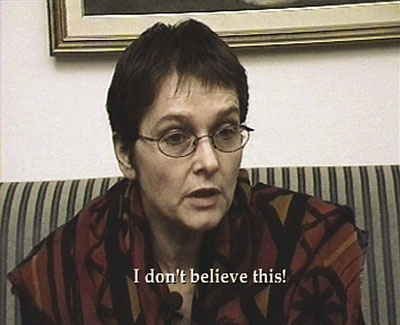
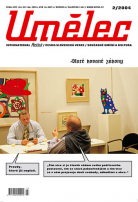

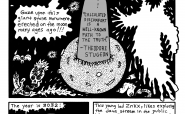

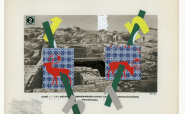
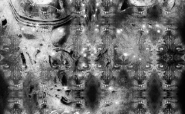
Kommentar
Der Artikel ist bisher nicht kommentiert wordenNeuen Kommentar einfügen